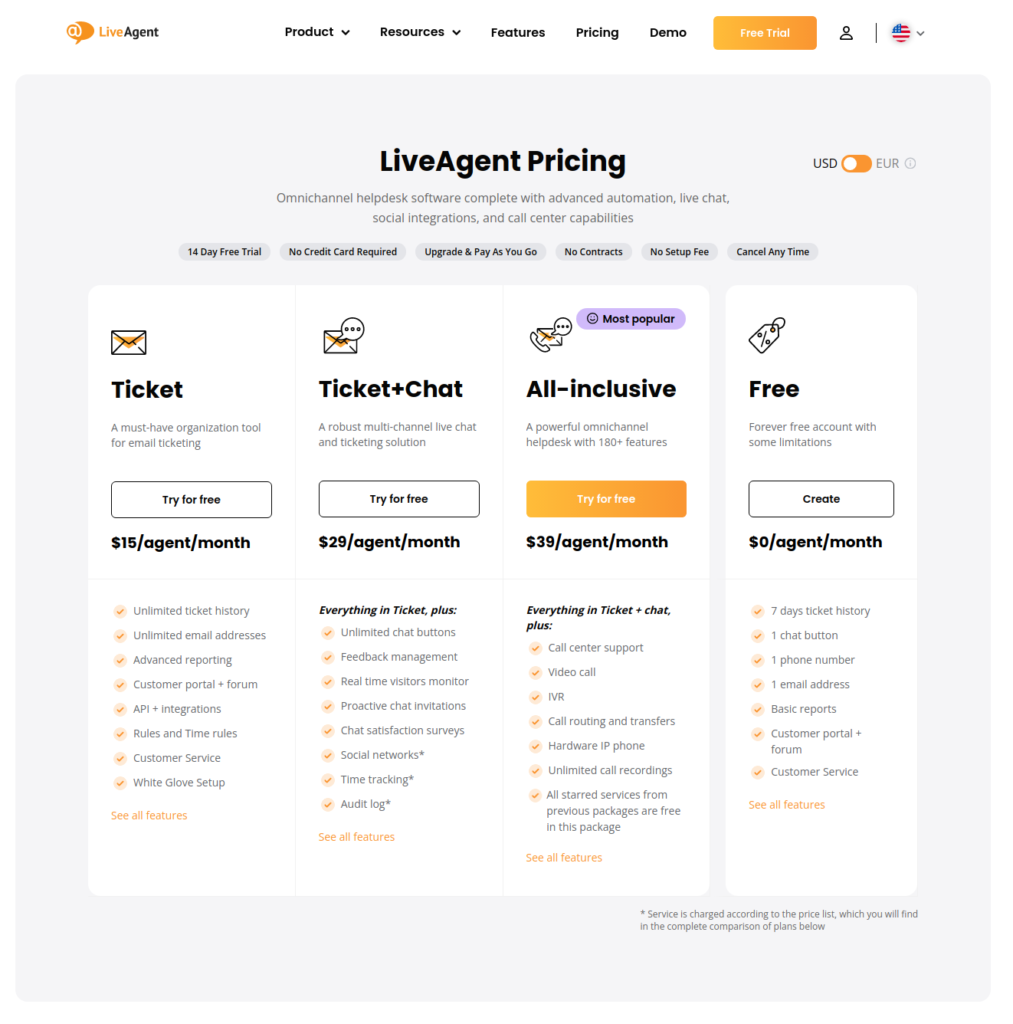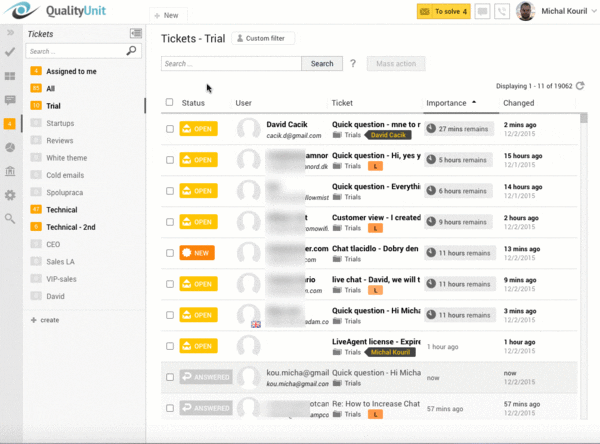- All checklists
- Marketing
- Starting a business checklist
Starting a business checklist
A comprehensive 2023 business startup checklist includes steps like choosing a business type, researching competition, estimating costs, hiring, setting goals, and securing permits. It serves as a roadmap to make the startup process smoother and successful.

- Figure out what type of business you want to start
- Research the industry and competition in your area
- Create a list of qualifications
- Estimate the price of products/services
- Find a location for your new business
- Consider how much money you will need to get started
- Research how much it will cost to run your business per year, including supplies and marketing costs (don’t forget about taxes.)
- Hire employees to help you run the day-to-day operations
- Obtain all permits, certificates, and licenses that are required by law
- Set up an email account and website with professional contact information
- Choose a name that is catchy and memorable
- Create an LLC or other legal entity to protect yourself and your company
- Find office space that suits your needs or pick out furniture to outfit your existing workplace
- Establish clear goals for the future of the company with measurable objectives
- Determine who your target customer is, what they need, and how your product or service will help them
- Arrange your accounting
- Work on your USP and competitive advantages
- Make a promotional plan and stick to it
- Wrap up a complete business plan with a timeline and milestones
Are you ready to start your own business?
It is one of the scariest and, at the same time, most exciting things that someone can do in their working life.
To help make this process easier, we have created a list of steps to guide you through starting your new company. Once you’ve finished reading it, we hope you will feel more confident and prepared.
What to consider when starting a business from scratch?
Use this checklist as a roadmap to guide you through the startup process. It will help you stay on track and ultimately succeed. Remember to look for the resources that best apply to your situation. If you are starting an Etsy shop, look for an Etsy shop checklist, if you are stating a SaaS business, look for the appropriate information about SaaS.
Starting a business checklist: Step by Step
The first and most crucial step is deciding what kind of business you want to run. There are many different options, so the possibilities can seem endless. Think about what you are passionate about and whether or not you can make a business out of it.
Why is the proper choice of new business important?
It will help determine if you should pursue your idea, how much money you’ll need, and where to go from there.

How to find out the type of business for you to start?
- Make a list of things you are interested in. Do not pick ideas that you think are popular, as they will be very competitive and challenging markets to break into.
- Once you’ve created a list of ideas, narrow them down and choose those that make your heart race.
- Determine which ones would make the most business sense. Write down what type of people might be interested in this product or service and why they may want to use it.
Once you’ve created this list, start thinking about how it can be turned into a business.
Tip: remember that your idea doesn’t have to be complicated or over the top.
Which tools to use when you want to start a new business?
- online research
- brainstorming with people who have business experience
- business journals and magazines
Once you’ve determined what type of business to start, it’s time to research your competition and the industry in general.
Why is research so important?
It will give you a better idea of whether your business has potential or not. You will also learn how big the market for the product or service might be. This will ensure that you won’t try to sell something for which there is already a lot of competition.
Use this step to determine if there is room for more businesses, how much money it will take to launch your idea, and what marketing you will need.

How to research your competitors?
There are many ways to do this, but the simplest is by using Google.
- Start typing in your type of business, the location you plan on starting a company, and some related keywords into the search bar on Google. This will bring up all of the similar businesses in your area that are currently operating.
- You may want to try phrases like “Your industry + your city” or “competitor + your industry + your city.”
- Make a list of each business, their website address, and contact information. Check out how they look online so you can compare that to what you plan to do for your business.
Tip: finding something that looks very cheap or outdated could be a sign that there is not much competition in the area yet, so your business might have potential here.
Which tools to use to research your competitors?
- Reading the news and blogs about your industry is a great way to learn what other companies are doing and potential trends for the future.
- Talking with people who currently work for businesses similar to the one you’re planning to launch can be very helpful as well.
- Look at competitors’ websites and social media accounts for more information about them.
What are the core skills required for running a business?
For example, suppose you’re starting a marketing agency. In that case, it helps if the owner has experience in marketing and knows which tactics work and which don’t for different types of businesses.
What skills will be helpful in general?
- time management
- leadership and communication
- a strong work ethic, professionalism, honesty, etc.
- attention to detail
- IT (especially if you’re looking to start an online business)
Why is the list of qualifications important?
Such a list will help you determine which skills you already have and which you need to develop to manage your business effectively.

How to create a list of qualifications?
- Write down a list of skills you already possess.
- Get your coworkers and family members to tell you what they value about you. You can even do this via an anonymous survey to ensure that they will be honest with you.
- You can talk to business owners or people who currently work for similar businesses about what types of qualities those companies tend to value most.
Which tools can help you to create a list of qualifications?
- LinkedIn profiles (of both professionals in your industry and people who work for competing companies) to see what type of qualifications they have for their jobs.
It’s a good idea to start by figuring out how much your product or service will cost.
Why is estimating the price of products/services important?
You need to have some financial independence to not be reliant on borrowing from people.
If you currently have a full-time job, it would be wise to start putting away as much money as possible so that when you decide to quit, you’ll still have sufficient savings in place.

How to set the right price for your service/product?
- Research the price of similar products/services, how much your competitors are selling them for, and how much it costs to make or acquire them.
- Once you have identified your target group and potential customers, survey them to discover how much they are willing to pay for the product you intend to sell.
- Choose a pricing strategy that suits your needs.
Tip: look into government grants and loans that will help you get your business started.
Which tools to use for finding the best price?
- SurveyMonkey or Google Forms
- Google Sheets (Google Drive) or Excel.
Having a brick-and-mortar presence is the next step in starting a business.
Why is a good location important for a new business?
It will help you decide if there’s enough room, how much money you’ll need to invest before opening day, etc.

How to find a good location for a new business?
Consider:
- Is there enough space for your business?
- How easy will it be to get people through the door (to buy what you’re selling, etc.)?
- Does the building have plenty of parking spots available outside, or will customers have to leave their vehicles elsewhere and walk?
- How much is the rent per square foot?
- Where are your competitors located?
- Is the chosen part of town convenient and affordable for your target customers?
Which tools will help you find a good location for a new business?
- Google Maps/Street View is an excellent way of looking at the area where your business will be located.
It is now time to look for a real estate agent who can help you with everything from finding the right place at the right price to organizing inspections and surveys.
Starting a business can cost quite a bit of money. You’ll need to keep enough in reserve for months when your sales are low or non-existent, so budget accordingly. It may take years before you start making any profit if you don’t plan for the slow months.
Why is important having enough money to start a new business?
This will allow you to determine whether or not your business can handle it and if there are ways to save more money before opening day without too many financial setbacks.
How to handle this step?
- Will you be working with a partner or alone? If it’s the former, how much money do they have available to contribute towards the business right away (if at all)?
- How many months’ worth of business expenses can you cover without having to take out loans or use a company credit card?
- How much cash do you have saved up right now, and how long will it last if your business isn’t generating enough income?
- Setting a budget for yourself to figure out how much money your business will need right away (startup costs) and what needs to happen if you are to generate income within 12 months or less (your goals), for example.
- If you’re hiring employees, factor in payroll taxes and benefits packages among other aspects that are likely to increase your monthly outgoings.
Which tools to use in this step?
- Financial modeling software to get fast and accurate budget creation with a view to planned business expenses and streamline income forecasting.
- Accounting software like Mint to keep track of how much you’re making every month, as well as your savings and bills.
In addition to knowing how much money you’ll need to launch your business, you need to determine what else needs to be done (supplies, marketing).
Why is having a business case important?
It will help prevent massive financial losses and give you ideas for ways to improve your business.

How to create a costs list for your new business?
- Reach out to industry professionals and ask for advice about what you should expect.
- Write down start-up costs, including any equipment you’ll need to purchase (rental fees), insurance plans if needed, etc.
Which tools to use to create a cost list?
- Keep track of all the money you make and spend by keeping receipts and invoices, etc. If that’s too much trouble for you, just use Mint or another accounting and record-keeping system. You can also upload any business documents related to taxes into their secure platform so that everything, is available at a moment’s notice.
- Use a spreadsheet to keep track of all your expenses. This will make it easy for you to see how much money comes in and out each month (and shows where any discrepancies might be).
If you can only hire one person, they should be a bookkeeper who can make sure all of your administrative tasks get done. However, if you can include an extra staff member, consider hiring someone to take care of customer service or sales.
Why is hiring an employee to run day-to-day operations important?
First, it will allow you to delegate tasks to focus on the bigger picture and not be bogged down by minor details or day-to-day tasks. It also allows one employee to focus entirely on sales while another focuses completely, e.g., on marketing.

How to find new employees?
- You will need a job description for your potential employees and their managers.
- Make sure all of the necessary documents are created beforehand. This includes an employee manual, a non-disclosure agreement, and the company’s intellectual property policy.
- The hiring process should start as soon as possible. It can be time-consuming to find a person who is qualified for managing day-to-day operations.
- Keep an eye out for people who have experience starting their own business or running a small team.
Which tools to find new employees?
- Check out LinkedIn, Indeed, UpWork, or Monster and Glassdoor to find potential employees and learn more about them.
- Find employees through Facebook business groups. Many people are looking for work there.
Make sure you follow all of the necessary legal steps for starting up a business, especially if it’s your first time.
Why is having all required permits, certificates, and licenses important?
If you follow all of the legal requirements for starting up your business, you will avoid any potential trouble for breaking the law in the future.

How to obtain all required permits, certificates, and licenses?
Start this process as soon as you open your business and make it a regular part of your operations.
- Figure out what permits, certificates, and a business license are required by law to run your company in your state or country. You can do that by checking your local governments’ websites.
- Make sure your employees complete all of the necessary training for each position in your company. This includes making them read and sign off on an employee manual that has been written by a lawyer or a human resources expert.
Which tools to use to obtain all required permits, certificates, and licenses?
- Internet searches or talking directly with local government offices
- Small Business Association, which has information about what permits and licenses you need.
- Consult a lawyer or an accounting advisor and get professional advice.
This is your chance to make a great first impression on potential new customers and clients.
Why is creating an email important for a new business?
Having an active, professional email address and website will allow people to contact you with ease. This is especially important if you don’t have a business location, i.e. if the company operates entirely online.
How to create an email for a new company?
- Create an email address that includes your or the company’s names. This will help people know they are contacting you as a professional.
- Create an attractive website with all of your contact information. Include location and hours for a brick-and-mortar business plus any other vital details.
Which tools to use to create email for a new company?
- NameMesh, EmailFormat, or Domainr to find the best name for your business’s email address
If possible, try to use a domain that matches your chosen company name so people can find out more about your business online.
Why is a good name important for a new company?
It can set the tone of how people view your company in its early stages. Choose something unique and recognizable that reflects what your business is about.

How to choose a name for your new company?
- Try brainstorming sessions with friends who have business experience or marketing expertise, including people outside of your usual network. This will provide an opportunity to get diverse perspectives on naming.
- Ensure that the domain and social media accounts associated with this company name are available.
Tip: avoid names that are hard to spell, conduct a trademark search, and make sure the name sounds good when said aloud.
Which tools to use to create a name for a new company?
- A name generator such as the NameVine will give you multiple name suggestions that can be sorted by popularity and uniqueness. The more popular a name is (the closer it is to the top of the list) generally means the greater the number of other businesses using similar words. Choose something else if possible.
- A name evaluator checks how a particular name might perform in search results or if it is available to register as a domain name.
If you are serious about your business, then adding a legal business entity (e.g. Limited Liability Company) will protect you if someone challenges your company’s name or tries to take away what belongs to you by claiming they did it first (similarly to how trademarks work).
Why is legal protection of your new business important?
Creating a separate business with its own rights and responsibilities will help you protect your assets. Even if you don’t start with much money, creating a legal entity is vital to protect your company.
How to protect your new business?
Depending on the country, region, or state, this process may differ:
- Once you have your company’s name and location, you can choose an entity type. Each one has its strengths and weaknesses, so your circumstances will determine the best option.
- You need to provide all of the required documentation.
- Obtain an EIN (Employer Identification Number).
- Open a separate business bank account.
- Set up your books or hire a bookkeeper.
Which tools to use to legally protect your company?
- LegalZoom is an online resource that provides legal support for forming LLCs or other legal entities. It costs $129 to get started and includes many resources, e.g. contracts with vendors.
- A local lawyer can provide you with advice and help draft the necessary documents.
- More local sources of information like your state website or city hall will provide additional resources for starting a business in your area.
Many new startups begin life in a home office or co-working spaces. Although these are options that can help keep costs low whilst allowing for flexibility in how and when employees work, you may want to seek a new space as your team and business needs grow.
Why is it important to find good office space?
Make sure the office space reflects the kind of culture and image you want your company to have.
If someone were visiting your website or store in person, would they get the best impression possible?

How to find good office space?
The best place to start is by searching for a realtor in your area who can assist with finding business spaces and commercial property listings.
Once you have identified some potential options, you will want to consider factors such as location (is it close enough to home for you to be able to work there every day?), amenities (what do they offer? How much would it cost if you needed those services?), and price.
You will then be able to choose the best office space among all the available options.
Which tools to find good office space?
- Craigslist allows users to post listings of available businesses or spaces. You could also see if there are any co-working opportunities in your area.
- OfficeFinder offers a search engine to locate all types of traditional workplaces, from big companies to small businesses.
- Sites like Yelp and Google also allow users to post reviews of different types of offices or business spaces, which can help you find the best location for your startup.
Describe your company’s mission statement and values to help guide employees during difficult times or projects.
Why are goals important for new business?
Your employees will know exactly what should be accomplished and how they can help. A clear mission statement and values will ensure that everyone is on the same page about the company culture. Include metrics such as revenue growth or the number of new customers acquired each week/month.
How to establish clear goals for the future of the company?
The best way to start is by creating SMART goals for your company, meaning specific, measurable, achievable, relevant, and time-bound.
Set objectives that are realistic but challenging enough to grow with you as you expand the company’s horizons.
Which tools to use to establish clear goals for the future?
- A search engine like Google or Bing, on which you might be able to find examples online of what other companies’ mission statements look like.
- Sites like Teamwork PM help with creating a mission statement and values for your company.
- Sites like CompanyCheckup provide you with reports on how effectively your business is following its goals.
Think about how your product will solve your prospects’ problems in an innovative way. Focus on what makes your product or service unique and better than the rest.
Why is it important to know your target group?
Knowing about your ideal customer’s pain points will help you create products that solve these issues.
How to find a target group?
The best way to find out about your customers is by talking to them. One way to do this is by creating surveys to obtain direct customer feedback.
Which tools to use to find a target group?
There are many ways for a startup business owner to find out more about their target audience. Some great resources to use are:
- Surveys can help you learn more about your customers and how they feel about the current product offerings. You could consider using tools like SurveyMonkey or InstaSurvey for this.
- Sites like Google Analytics reveal valuable insights into who is visiting your website and what pages they look at most often.
- Sites like Teamwork PM and LiveAgent allow you to create a customer support ticket system to keep track of their feedback.
Make sure that you have an accountant for bookkeeping who can help handle company finances.
Why is arranging your accounting important?
Your business accountant will make sure that all tax implications and accounting records are covered, while your bookkeeper will look after day-to-day aspects like invoicing and sales order processing.

How to arrange your accounting?
If possible, meet with them face-to-face at their office so that you can see the environment for yourself.If you are not able to do that, a phone call or a Skype meeting might be a better option.
Ensure that they have experience within your business industry, as it will likely take them some time to understand how your business functions.
Don’t forget to check reviews and referrals.
Which tools will help you to arrange your accounting?
- Use Google to find an accountant in your area. Make sure to look for CPAs, as these professionals will be able to set up bookkeeping for your company.
- Check LinkedIn to examine your prospective accountants’ qualifications.
Your unique selling proposition (USP) is a phrase that summarizes your company’s competitive advantage.
Why is working on your USP and competitive advantages important?
A strong USP will help you stand out from the competition.
How to find competitive advantages?
The best way to determine your company’s competitive advantage is by gathering feedback from your target customer base. Consider using a questionnaire or conducting an informal interview with some of these people if possible. Once you have done so, start looking for patterns in the feedback that you receive.

Which tools to use to find competitive advantages?
- Using sites like SurveyMonkey or Google Forms can simplify this process and ensure that all of the information you need is gathered.
- Use Google to find out what your competitors are offering and how they differ from you. This will help you understand their USPs and identify any weaknesses that may provide an opportunity for improvement on your end.
- Use LiveAgent or other customer service software to communicate with your customers.
At the beginning, knowing what promotional activities are most effective can be challenging. Try to have a plan in place as soon as possible. However, don’t fall into the trap of not regularly tweaking your promotional campaign.
Why is a promotional plan important?
It will help to increase sales and introduce your business to more customers.

How to create a promotion plan?
Test different activities and see which ones work best for your business. Once you have found something that works well for you, it will be essential to stick with it until another activity proves even more effective.
Which tools to use to create a promotional plan?
- Consider using Google Adwords to test different activities and see which one is the most effective for your company. This tool can be used as a search engine that delivers targeted, cost-per-click ads on both the Search and Display Networks.
- Google Ads is an online advertising platform that lets you place ads in search engine results as well as on non-search websites, mobile business apps, and videos.
- Social media marketing can be used to promote your company’s brand, increase sales, and get the word out there about what you have to offer.
A business plan is a roadmap to success and should include key business milestones, timelines, and financials.
Why is having a complete business plan important?
Having attainable goals along with a realistic schedule and specific action items increases your chances of achieving them.

How to create a business plan?
Here are some of the essential components:
- executive summary
- company description
- products and services available
- market analysis
- strategy and Implementation
- organization and team management
- financial plan and projections
Which tools to use to create a business plan?
- Lean Canvas is a tool (a simple one-sheet template created by Ash Maurya) for developing a business plan that helps you break down your ideas.
- LivePlan enables you to track and quickly write your business plan, secure funding, and get insights to help you achieve your goals.
Summary of starting a business checklist
- Figure out what type of business you want to start
- Research the industry and competition in your area
- Create a list of qualifications
- Estimate the price of products/services
- Find a location for your new business
- Consider how much money you will need to get started
- Research how much it will cost to run your business per year
- Hire employees to help you run the day-to-day operations of your company
- Get all of the necessary permits, certificates, and licenses required by law
- Set up an email account and website with professional contact information
- Choose a name that is catchy and memorable
- Create an LLC or other legal entity
- Find office space that suits your needs or pick out furniture to outfit your existing workplace
- Establish clear goals for the future of the company with measurable objectives
- Determine who your target customer is, what they need, and how your product or service will help them
- Arrange your accounting
- Work on your USP and competitive advantages
- Make a promotional plan and stick to it.
- Wrap up a complete business plan with a timeline and milestones
Want to learn more?
Wondering what else you may need when starting your business? Then you may be interested in our article on the top small business help desk software. Discover different options and learn how to choose the right one without breaking the bank. Check out the article now!
Frequently Asked Questions
How to start a business in 2024?
Starting a business in 2024 may seem more difficult than it did before the pandemic created so much uncertainty. A thorough business plan that prevents you from missing anything important is more important than ever before. Our Business Startup Checklist will help you to make sure that you are on the right track.
How much money do you need to start a business?
The amount will depend on your idea and how big it is. Generally, the more people involved in an idea or product, the more complex and costly it will be. However, if you’re bootstrapping (starting with little outside funding, this should help prevent many unnecessary costs.
What do you need to do now?
The simple answer is to do your homework. You need to research the market, be aware of industry trends, and take a fresh approach that hasn’t been done before.
Do you need experience to run a business?
Not necessarily. The beauty of the Internet is that you can now learn a lot from books, courses, mentors, etc.
How to come up with a business idea?
The best way is by finding problems in the marketplace and devising solutions to them. This can be done by studying your own pain points, which could apply to others.
What are the benefits of starting a business?
Some of the most notable ones include being your own boss, exerting control over what you do and how you do it, plus developing skills that can be used in other areas throughout life.
What are the most important qualities in a business?
The most crucial is to have an idea that solves or meets market demands. You’ll also need good leadership qualities, critical thinking skills, and being able to communicate well with others, especially if you’re trying to grow your company’s team
Will your product be competitive in its industry?
It needs to be. And there are many ways to ensure this is the case. They include finding a niche, having an innovative idea, as well as using analytics (e.g. Google Analytics) and optimization tools (Google Search Console, for example).
What can you do a bit later?
It’s important to remember that starting a business is just the tip of the iceberg. There are many different steps to grow your company into something sustainable and then eventually profitable. What you can do later might be more complicated depending on the industry, but this will rely heavily on what stage of business growth you’re in. It will also be high time to take care of business insurance and social security. Choose an experienced insurance agent and take out adequate business insurance.
What are the disadvantages of starting a business?
Some of the most notable ones include the threat of losing money and putting in long hours when times get tough.
Starting an Etsy shop checklist
Want to open an Etsy shop? Get ready to sell like a pro with this starting an Etsy shop checklist.
New client onboarding checklist
Bringing a new client on board requires special attention. Ensure that nothing is missed by using our free new client onboarding checklist.
You will be
in Good Hands!
Join our community of happy clients and provide excellent customer support with LiveAgent.

Our website uses cookies. By continuing we assume your permission to deploy cookies as detailed in our privacy and cookies policy.
Want to improve your customer service?
Answer more tickets with our all-in-one help desk software. Try LiveAgent for 30 days with no credit card required.

Hello, I’m Andrej. We’re thrilled to invite you to an exclusive software demo where we’ll showcase our product and how it can transform your customer care. Learn how to achieve your business goals with LiveAgent or feel free to explore the best help desk software by yourself with no fee or credit card requirement.
Andrej Saxon | LiveAgent support team

- How to achieve your business goals with LiveAgent
- Tour of the LiveAgent so you can get an idea of how it works
- Answers to any questions you may have about LiveAgent

 Български
Български  Čeština
Čeština  Dansk
Dansk  Deutsch
Deutsch  Eesti
Eesti  Español
Español  Français
Français  Ελληνικα
Ελληνικα  Hrvatski
Hrvatski  Italiano
Italiano  Latviešu
Latviešu  Lietuviškai
Lietuviškai  Magyar
Magyar  Nederlands
Nederlands  Norsk bokmål
Norsk bokmål  Polski
Polski  Română
Română  Русский
Русский  Slovenčina
Slovenčina  Slovenščina
Slovenščina  简体中文
简体中文  Tagalog
Tagalog  Tiếng Việt
Tiếng Việt  العربية
العربية  Português
Português 





